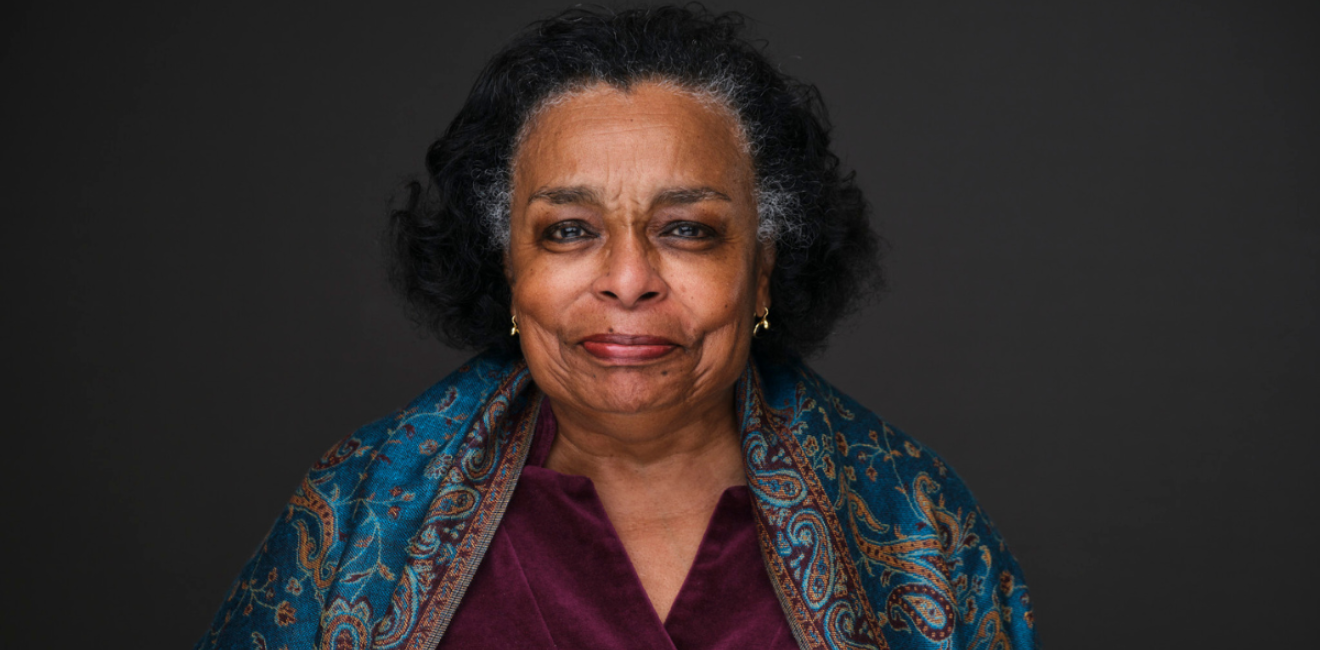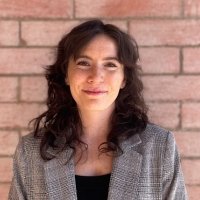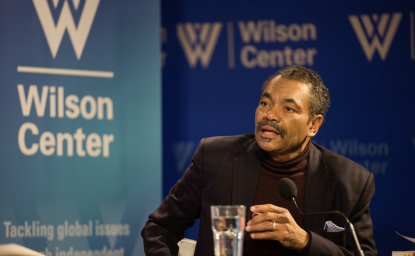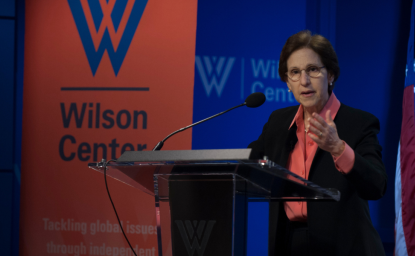
A blog of the Wilson Center

Dr. Dianne Pinderhughes is a professor of Africana Studies and Political Science at the University of Notre Dame with concurrent faculty appointments and fellowships in American and Gender Studies. She served as president of the American Political Science Association in 2021 before becoming president of the International Political Science Association while heading the Notre Dame Africana Studies program. As a Woodrow Wilson Fellow from 2003-04, Dr. Pinderhughes dedicated her time to her ongoing book project, The Evolution of Civil Rights Organizations in the Twentieth Century: African American Politics and the Voting Rights Act. Her longstanding career in academia focuses on the Civil Rights movement, past, present, and future.
Pinderhughes grew up in Anacostia, a southeastern DC neighborhood that was predominantly Black at the time. Living through segregation during her childhood contributed to Pinderhughes’s longstanding fascination with politics. Her father worked at the Postal Service during World War II and served in the war. Her parents brought the newspaper home every day, and every day, a young Dianne Pinderhughes scoured it for stories of the world as she experienced it. She went to a Catholic girls’ high school within sight of the Capitol and blocks from the Supreme Court, breathing in the city’s political atmosphere, which was tainted by the District’s lack of voting and budgetary rights associated with statehood. “I grew up much aware of the racial hierarchy—the political hierarchy—that was created to control the Black population of Washington. And I wanted it to change.”
At the time, there were very few high schools for Black students. Throughout her career, Pinderhughes has emphasized the interrelatedness of economic, educational, and political opportunities. Without widespread access to high quality education on top of systemic expropriation and barriers to financial freedoms and voting, African Americans face limited access to the full rights of citizenship promised to them.
Pinderhughes appreciates the opportunities her parents made possible for her and her sister, who is now an attorney. One attractive feature of the Wilson Center was its proximity to her parents, who still live in the District. But the Wilson Center particularly appealed to her because of its unique balance of academic rigor and ties to government through Congress, which aligns with her hopes of translating research into lasting change. Pinderhughes’s time at the Wilson Center laid much of the groundwork for her future work related to Civil Rights history, organizations, and gendered experiences.
While at the Wilson Center, she began exploring the NAACP Legal Defense Fund and was struck by the decades it took for the organization to achieve consistent victories in court litigations, paving the way for a slew of newer Civil Rights organizations in the 1960’s, and the expansion of the movement to encompass other marginalized groups. She also took an interest in the National Association of Colored Graduate Nurses who, in merging with the American Nurses Association, epitomized the feats and shortcomings of early cross-organizational collaborations, setting the stage for other cooperative efforts. Yet, while the NAACP Legal Defense Fund, for example, acted as a blueprint for other Civil Rights organizations, their models have also been emulated by opposing organizations aiming to dismantle civil rights progress.
Dr. Pinderhughes’s career focuses on the long game, following the ever-changing nature of this movement. Reflecting on her career in academia, she considers herself to be a practical political scientist. Given the constant struggle African Americans have faced to stabilize their right to participate meaningfully in US politics, she finds studying the tangible effects of governmental conditions to be more pressing than theoretical or behavioral trends.
Yet stable progress is still painfully slow. “It takes generations of work, it takes innovation, and it takes people willing to work across differences,” says Pinderhughes.
Since her tenure at the Wilson Center, Dr. Pinderhughes has served as a leader and educator on Civil Rights issues while progress and setbacks unfolded before her eyes. She hopes that, when finished, her book will illustrate how progress is made in the face of resistance, the dimensions of such resistance, and what it takes to overcome it.
This blog was researched and drafted by Bella Wexler.
Author

Explore More in Scholar & Alumni Spotlight
Browse Scholar & Alumni Spotlight
Olufemi Vaughan: Shaping Governance Through Scholarship and Dialogue

Dr. Maurice Jackson: The Sounds of Resistance Throughout History

